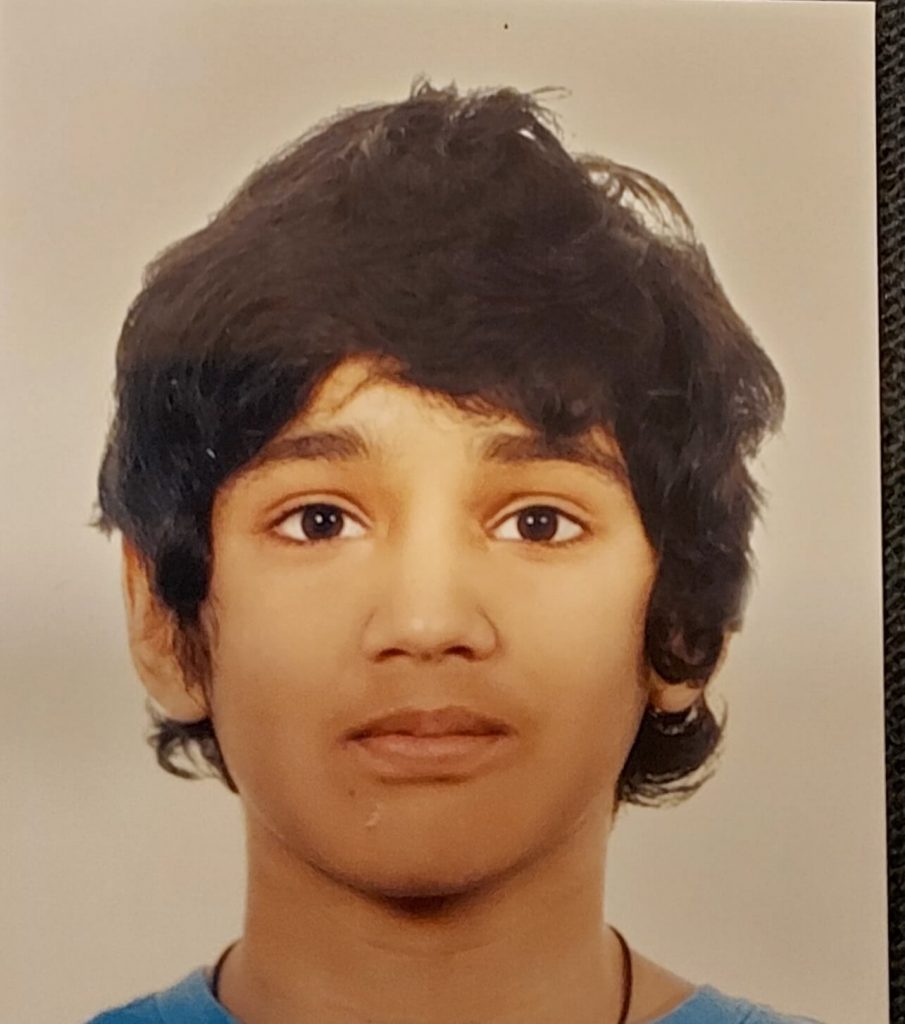Our Schools
On Tuesday morning we had a wonderful talk by Ms. Lavanya about the importance of an attitude of complete sincerity, commitment, and passion towards our work in our lives.
Here’s the story of a carpenter which teaches us these values.
The Carpenter
An elderly carpenter was ready to retire. He told his employer/contractor of his plans to leave the house-building business and live a more leisurely life. The contractor was sorry to see his good worker go and asked if he could build just one last house as a personal favor. The carpenter said yes, but in time it was easy to see that his heart was not in his work. He resorted to shoddy workmanship and used inferior materials. It was an unfortunate way to end his career. When the carpenter finished his work and the builder came to inspect the house, the contractor handed the front-door key to the carpenter. “This is your house,” he said, “my gift to you.”
What a shock! What a shame! If he had only known that he was building his own house, he would have done it all so differently. Now he had to live in the home he had built which was not too good. So it is the same case with us. We build our lives in a distracted way, reacting rather than acting, willing to put up less than the best. At important points, we do not give the job our best effort. Then with a shock we look at the situation we have created and find that we are now living in the house we have built. If we had realized, we would have done it differently.
Think of yourself as the carpenter. Think about your house. Each day you hammer a nail, place a board, or erect a wall. Build wisely. It is the only life you will ever build. It is your work that speaks for you and who you are. It defines you completely. If you take your work for granted and not pay much interest in what you do, however small it may be or whoever may benefit from that work, it is all going to reflect upon you.
Who could say it more clearly? Your life today is the result of your attitude and choices in the past. Your life tomorrow will be the result of your attitude and the choices you make today.
Ponder over the following quotes,
-
- “Things turn out best for the people who make the best of the way things turn out.” – John Wooden, college basketball coach
- “Your attitude, not your aptitude, will determine your altitude.” – Zig Ziglar, motivational speaker, and author
- Ability is what you’re capable of doing. Motivation determines what you do. Attitude determines how well you do it.” – Lou Holtz, pro football coach and motivational author
Ms. Lavanya Raghavan is very passionate about teaching Science and Mathematics. Currently, she is handling Physics for High School and Mathematics for Middle School.
More stories from Ekya:
Being on time – By Ms. Vasudha Parashar
BEING ON TIME … A Dying Etiquette
 There are a lot of proverbs on time such as; 'A stitch on time saves nine', 'Time and Tide wait for none', and 'Nothing is more powerful than Time'. The importance of time right from the beginning of our life is evident from the fact that even the time of our birth is recorded.
There are a lot of proverbs on time such as; 'A stitch on time saves nine', 'Time and Tide wait for none', and 'Nothing is more powerful than Time'. The importance of time right from the beginning of our life is evident from the fact that even the time of our birth is recorded.
Why being on time is so important?
Punctuality is a valued trait. When you are on time it simply means that you value YOURSELF as well as OTHERS. It portrays you as a disciplined person who respects others and values their time.
Then, why such a good manner is dying? Casualness is one of the main reasons for such an approach. If the delay happens once or twice, one can understand it's an emergency, but when it becomes a repeated habit; then the approach is casual. If a person does not value the time of others, it reflects their insensitivity towards others. Fashion or creating self-importance could be another reason for being late. Some people assume that if they arrive late to an occasion, others will give them importance, considering them to be very busy people, while the truth may be different. Importance of time should perhaps be taught from childhood itself. It should be made habitual in all families so that the children can learn to be on time as a gesture of respect. When such habits are encouraged in families it extends to the outside world as well. Being on TIME also ensures many other good habits and helps in better focus for a disciplined life. A disciplined schedule not only helps the mind to be in focus and stress-free but also a disciplined body is more active and healthy.
Importance of time should perhaps be taught from childhood itself. It should be made habitual in all families so that the children can learn to be on time as a gesture of respect. When such habits are encouraged in families it extends to the outside world as well. Being on TIME also ensures many other good habits and helps in better focus for a disciplined life. A disciplined schedule not only helps the mind to be in focus and stress-free but also a disciplined body is more active and healthy.
 Many times we have seen an important event or class getting canceled or delayed due to absence or late coming of people. If we really want to encourage discipline, instead of canceling or delaying the event we should stick to time and avoid the latecomers. This will keep people who are on time motivated and set an example for latecomers. Let the small planning lead to better time management. Make being on time a habit, not a forced task.
Many times we have seen an important event or class getting canceled or delayed due to absence or late coming of people. If we really want to encourage discipline, instead of canceling or delaying the event we should stick to time and avoid the latecomers. This will keep people who are on time motivated and set an example for latecomers. Let the small planning lead to better time management. Make being on time a habit, not a forced task.
A brief profile of Ms. Vasudha Parashar
 Ms. Vasudha Parashar is a Finance Professional with vast corporate experience in India and abroad, but in a quest to pursue her passion for art and dance she moved away from corporate life. Ms. Vasudha started her own Art House and has been teaching classical dance and paintings of various forms such as; Oil, Acrylic, Ceramic, Nib, etc. She also puts her art for sale at exhibitions and online and contributes the profits from the Art House to sponsoring the education of students at Vimukti Sanstha, Jaipur an Institute for the education of unprivileged girls.
https://www.facebook.com/Dancing-Brushes-by-Vasudha-163628504332204/?epa=SEARCH_BOX
Ms. Vasudha Parashar is a Finance Professional with vast corporate experience in India and abroad, but in a quest to pursue her passion for art and dance she moved away from corporate life. Ms. Vasudha started her own Art House and has been teaching classical dance and paintings of various forms such as; Oil, Acrylic, Ceramic, Nib, etc. She also puts her art for sale at exhibitions and online and contributes the profits from the Art House to sponsoring the education of students at Vimukti Sanstha, Jaipur an Institute for the education of unprivileged girls.
https://www.facebook.com/Dancing-Brushes-by-Vasudha-163628504332204/?epa=SEARCH_BOXNot All Heroes Wear Capes Or Are Muscular – Teacher’s Talk by Ms. Meera Sudakar
 It was Ms.Meera’s “Good Morning Children!” that made us halt. We put our bags down and again lined up to listen to her talk. She started off by asking us what was special about the 26th of January. If you guessed it to be Republic Day (like us) you are correct! You have won the Jackpot! (Not really, though)
If you have watched the parade held on the Republic Day, you might have noticed a few children in the parade on decorated elephants and maybe you, like me, might have thought “What on God’s Green Earth are these children doing?” Here is the answer. These are the children who have been awarded the “National Bravery Award”, a set of awards given to 25 children below the age of 16 years for their “meritorious acts of bravery against all odds”. This year’s winners are Anika Jaimini, Camelia Kathy Kharbyangar, Setu Malik, Gohil Jayarajsinh and Nitisha Negi. Over the years, the scope of the awards has been extended to even Arts, Science, and Math, etc. The President later hosts a dinner party for the winners of these awards and other dignitaries.
It was such a “Wow!” moment for me and the rest of the school to know the brave and courageous acts of children like us. Thus, not all heroes wear capes or are muscular!
By - Mahashree G Das, Grade 8 A, Ekya School JP Nagar.
It was Ms.Meera’s “Good Morning Children!” that made us halt. We put our bags down and again lined up to listen to her talk. She started off by asking us what was special about the 26th of January. If you guessed it to be Republic Day (like us) you are correct! You have won the Jackpot! (Not really, though)
If you have watched the parade held on the Republic Day, you might have noticed a few children in the parade on decorated elephants and maybe you, like me, might have thought “What on God’s Green Earth are these children doing?” Here is the answer. These are the children who have been awarded the “National Bravery Award”, a set of awards given to 25 children below the age of 16 years for their “meritorious acts of bravery against all odds”. This year’s winners are Anika Jaimini, Camelia Kathy Kharbyangar, Setu Malik, Gohil Jayarajsinh and Nitisha Negi. Over the years, the scope of the awards has been extended to even Arts, Science, and Math, etc. The President later hosts a dinner party for the winners of these awards and other dignitaries.
It was such a “Wow!” moment for me and the rest of the school to know the brave and courageous acts of children like us. Thus, not all heroes wear capes or are muscular!
By - Mahashree G Das, Grade 8 A, Ekya School JP Nagar.











Leave a reply